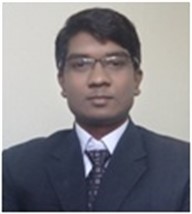


Prof. S. D. Datey
HOD Electrical Engineering Department
email:hod.electrical.sit@sinhgad.edu,
sdd.sit@sinhgad.edu
Phone: 02114 – 673450
It gives me immense pleasure to present salient strengths of the Department of Electrical Engineering, SIT, Lonavala. It may be my personal fascination, what I feel that the intimacy of this campus to nature ensures special warmth in the environment at SIT, Lonavala. Extraordinary activeness is observed all alike in students, faculty and staff.
Department of Electrical Engineering is determined to derive maximum benefits from these environmental dividends. On the strength of the true academic culture established over years in the Sinhgad Group, this department has taken initiative in achieving excellence in academic performance of students. Special emphasis is laid on the Teaching-Learning process. Efforts are taken to make the class room activity highly interactive. Special weekly brainstorming sessions are arranged for faculty to consolidate conceptual clarity and applications.
Students are encouraged to take up leadership roles in diverse ways. Electrical Engineering Students’ Association (EESA) offers an excellent platform for this. Alumni Association, Industrial Board and Academic Board in the department add vibrancy to the environment.
I wish every success to all the students, faculty and staff of the department and of the campus on whole.
VISION
To establish as a prime center in the field of education for Electrical Engineering to produce competent Electrical Engineers to serve the industry and society
MISSION
M1: Create research environment to face the emerging technological challenges for the benefit of society.
M2: Strengthen industry-institute interface for developing teamwork, internship and entrepreneur skills.
M3: Strengthen the skills to present and communicate technical aspects professionally.
Short Term Goals
Long Term Goals
Programme Educational Objectives
Graduates of BE Electrical program, four years after graduation, will
PEO1. Engage in designing, manufacturing, testing, operating and/or maintaining systems in the field of electrical engineering and industries.
PEO2. Solve problems of social relevance applying the knowledge of electrical engineering, and/or pursue higher education and research.
PEO3. Engage in lifelong learning, career enhancement and adopt to changing professional and social needs.
The program outcomes (PO’s):
POs are statements that describe what students are expected to know and be able to do upon graduating from the program. These relate to the skills, knowledge, analytical ability attitude and behavior that students acquire through the program.
i) Engineering Knowledge: Apply the knowledge of mathematics, science, engineering fundamentals, and an engineering specialization to the solution of complex engineering problems.
ii) Problem Analysis: Identify, formulate, review research literature, and analyze complex engineering problems reaching substantiated conclusions using first principles of mathematics, natural sciences and engineering sciences.
iii) Design/Development of Solutions: Design solutions for complex engineering problems and design system components or processes that meet the specified needs with appropriate consideration for the public health and safety, and the cultural, societal, and environmental considerations.
iv) Conduct Investigations of Complex Problems: Use research-based knowledge and research methods including design of experiments, analysis and interpretation of data, and synthesis of the information to provide valid conclusions for complex problems:
v) Modern Tool Usage: Create, select, and apply appropriate techniques, resources, and modern engineering and IT tools including prediction and modelling to complex engineering activities with an understanding of the limitations.
vi) The Engineer and Society: Apply reasoning informed by the contextual knowledge to assess societal, health, safety, legal and cultural issues and the consequent responsibilities relevant to the professional engineering practice.
vii) Environment and Sustainability: Understand the impact of the professional engineering solutions in societal and environmental contexts, and demonstrate the knowledge of, and need for sustainable development.
viii) Ethics: Apply ethical principles and commit to professional ethics and responsibilities and norms of the engineering practice.
ix) Individual and Team Work: Function effectively as an individual, and as a member or leader in diverse teams, and in multidisciplinary settings.
x) Communication: Communicate effectively on complex engineering activities with the engineering community and with society at large, such as, being able to comprehend and write effective reports and design documentation, make effective presentations, and give and receive clear instructions.
xi) Project Management and Finance: Demonstrate knowledge and understanding of the engineering and management principles and apply these to one’s own work, as a member and leader in a team, to manage projects and in multidisciplinary environments.
xii) Life-long Learning: Recognize the need for, and have the preparation and ability to engage in independent and lifelong learning in the broadest context of technological change.
Program Specific Outcomes (PSOs)
PSO1:To apply the fundamental knowledge of Mathematics, Science, and Electrical Engineering to analyse and solve the complex problems in Electrical and allied interdisciplinary areas.
PSO2:To apply the appropriate techniques and modern engineering hardware and software tools in electrical engineering to engage in life-long learning and to successfully adapt in multi- disciplinary environments